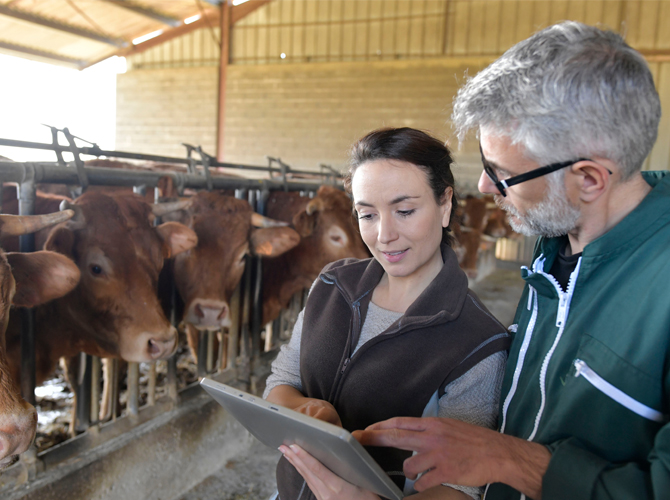It is important to prioritize the health and welfare of your animals, no matter how you raise your livestock. Organic and alternative livestock farmers can face unique challenges in preventing illness and keeping their animals healthy. Establishing a VCPR with a local Vet is a great place to start. This week’s blog post will discuss the importance of building a strong VCPR and its benefits to you and your livestock.
What is a VCPR?
A VCPR is the basis for a working relationship between you and your Vet. This agreement means that your Vet assumes the responsibility of having you as a client, knows your livestock and practices, and provides care and treatment of your animals. You can learn more about what a VCPR is here. This may look slightly different for organic and alternative farmers, focusing more on consulting and assisting with prevention plans.
Sharing Knowledge
One of the main functions of a VCPR is to knowledge. Local Vets usually know about diseases or conditions of special concern in the area and can share that information, saving you time and money. Alternative farmers usually know more about organic standards, alternative treatments, and prevention measures that can be shared with their Vet. A strong VCPR will be helpful to farmers in case of a local or regional disease outbreak or other health concerns. Knowing your farm and practices can help your Vet better care for your livestock. Make sure to develop prevention plans and practices early with your Vet. Working together and identifying issues early can help reduce the need for future treatments (including antibiotics).
Important aspects of the VCPR
Trust and Respect are number one when developing a VCPR. Your Vet should respect your goals for organic/alternative production, and you should be able to trust and rely on their animal health advice.
Open Communication can be difficult in any relationship. Both you and your Vet must be clear about expectations, goals, and concerns. Meeting and communicating often can help reduce confusion or misunderstanding and allow you to prioritize animal health.
Collaboration and Education. Difficult decisions occur on every farm, including your Vet in animal health decisions can allow for new perspectives and enhance the care your livestock receives. Both you and your Vet must be committed to educating yourself on new organic and alternative animal health practices, including new regulations, practices, and research.
Regular Animal Monitoring (by you), health assessments (by your Vet), and good record-keeping lead to timely intervention that benefits you and your livestock.
A VCPR can bring many benefits to you and your animals. The investment of your time and effort into creating this relationship is important. Looking for more information on establishing a VCPR for your herd? Check out the resources below to continue learning how a strong foundation in any VCPR can set your herd up for success.
Resources:
New York Beef: Establishing A Valid Veterinarian-Client-Patient Relationship
AABP: Establishing and Maintaining the Veterinarian-Client-Patient Relationship in Bovine Practice
Minnesota Dept. of Agriculture: Establishing A Veterinary Client Patient Relationship

